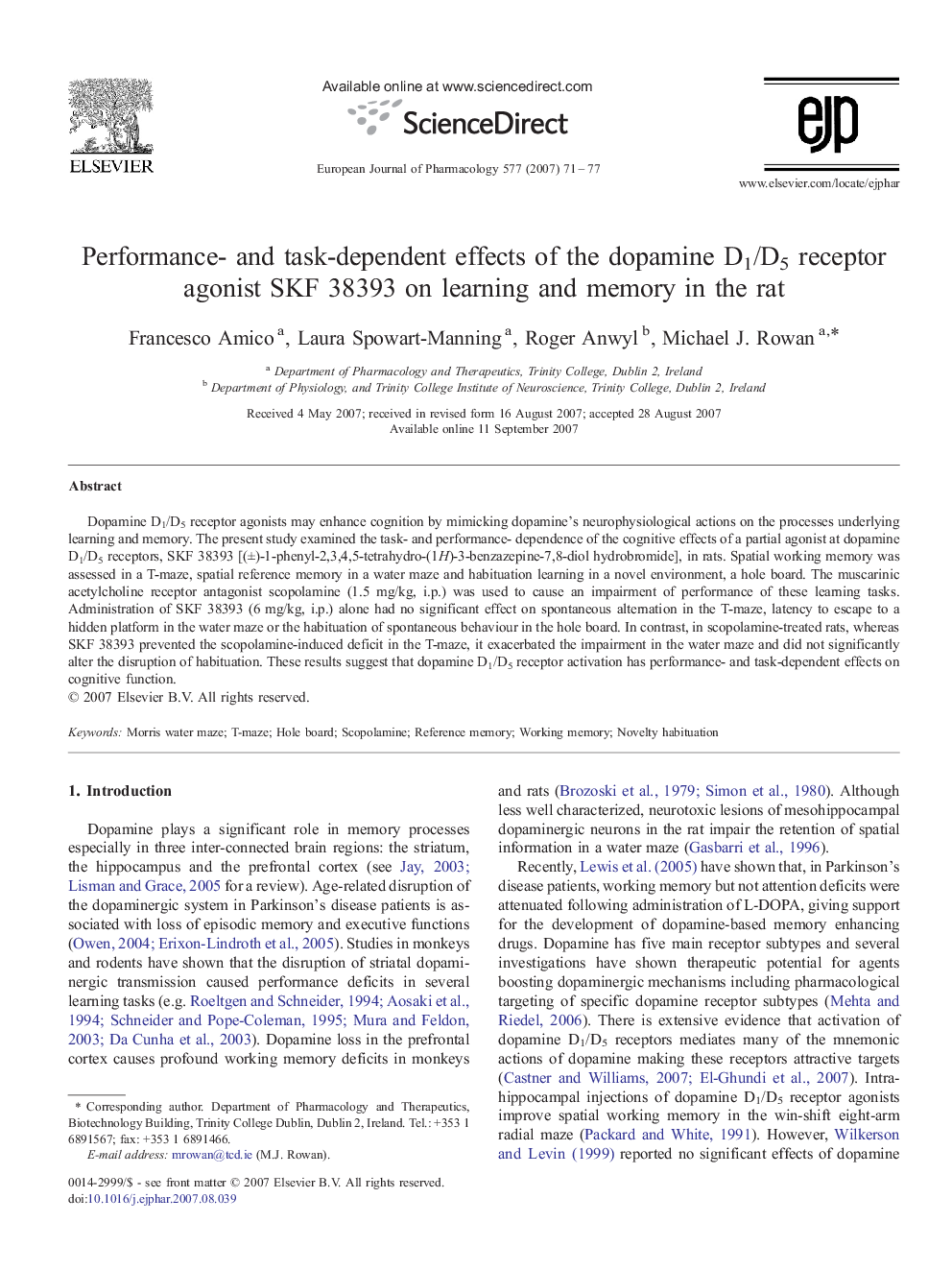| Article ID | Journal | Published Year | Pages | File Type |
|---|---|---|---|---|
| 2535703 | European Journal of Pharmacology | 2007 | 7 Pages |
Dopamine D1/D5 receptor agonists may enhance cognition by mimicking dopamine's neurophysiological actions on the processes underlying learning and memory. The present study examined the task- and performance- dependence of the cognitive effects of a partial agonist at dopamine D1/D5 receptors, SKF 38393 [(±)-1-phenyl-2,3,4,5-tetrahydro-(1H)-3-benzazepine-7,8-diol hydrobromide], in rats. Spatial working memory was assessed in a T-maze, spatial reference memory in a water maze and habituation learning in a novel environment, a hole board. The muscarinic acetylcholine receptor antagonist scopolamine (1.5 mg/kg, i.p.) was used to cause an impairment of performance of these learning tasks. Administration of SKF 38393 (6 mg/kg, i.p.) alone had no significant effect on spontaneous alternation in the T-maze, latency to escape to a hidden platform in the water maze or the habituation of spontaneous behaviour in the hole board. In contrast, in scopolamine-treated rats, whereas SKF 38393 prevented the scopolamine-induced deficit in the T-maze, it exacerbated the impairment in the water maze and did not significantly alter the disruption of habituation. These results suggest that dopamine D1/D5 receptor activation has performance- and task-dependent effects on cognitive function.
